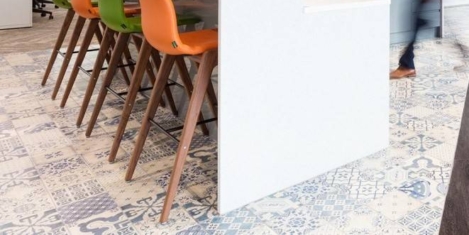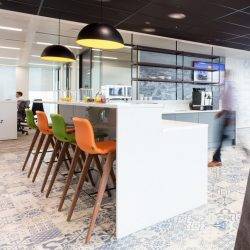May 2, 2018
The quest for wellbeing has taken over from our search for productivity
 For decades, humankind has sought to establish the link between office design and productivity. And by humankind I mean a parochial band of researchers, suppliers, workplace specialists, futurologists and designers with a special interest in the whole thing. Most other people only expressed a passing interest in the subject. It did not seem to matter to this band that the whole thing had been proved many times over many years, invariably falling on cloth, if not exactly deaf, ears. We’ve known for some time what makes people happy and productive at work and much of the new research has merely served to proved something we already know. Undaunted, researchers maintained their quest for the evidence that would get the message across to an apparently indifferent world. This quest has mutated over the past few years into something that is at first glance only slightly different but which has some rather interesting implications. The go-to workplace topic of the early 21st Century is no longer productivity per se, but wellbeing, and that is making all the difference.
For decades, humankind has sought to establish the link between office design and productivity. And by humankind I mean a parochial band of researchers, suppliers, workplace specialists, futurologists and designers with a special interest in the whole thing. Most other people only expressed a passing interest in the subject. It did not seem to matter to this band that the whole thing had been proved many times over many years, invariably falling on cloth, if not exactly deaf, ears. We’ve known for some time what makes people happy and productive at work and much of the new research has merely served to proved something we already know. Undaunted, researchers maintained their quest for the evidence that would get the message across to an apparently indifferent world. This quest has mutated over the past few years into something that is at first glance only slightly different but which has some rather interesting implications. The go-to workplace topic of the early 21st Century is no longer productivity per se, but wellbeing, and that is making all the difference.



































May 16, 2018
A 21st Century take on the idea of the time capsule that tells us something about the way we work
by Freddie Steele • Comment
(more…)